Posted on January 2nd, 2010 by ASEE
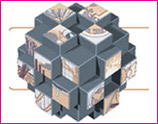
The Environmental Science Activities for the 21st Century (ESA21) Project Website provides several activities focused upon the environment, relying upon a mixture of hands-on, field, and Internet-based experiences to provide a deeper understanding of the issues.
Read More
Filed under: Web Resources | Comments Off on Curriculum: Environmental Science for the 21st Century
Posted on January 2nd, 2010 by ASEE
 “A number of engineering-based curricula, even at the early elementary school level,2 are being used to teach thousands of U.S. children from diverse backgrounds. The success of these curricula suggests that some aspects of engineering are generally accessible to a broad range of children at many different age levels.”
“A number of engineering-based curricula, even at the early elementary school level,2 are being used to teach thousands of U.S. children from diverse backgrounds. The success of these curricula suggests that some aspects of engineering are generally accessible to a broad range of children at many different age levels.”
Read More
Filed under: Web Resources | Comments Off on What’s a Good Age to Start Engineering?
Tags: Professional Development, Research on Learning
Posted on January 2nd, 2010 by ASEE
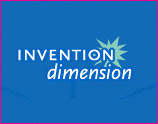 The Lemelson-MIT Program’s Invention Dimension is a fun-filled and at times wacky approach to making learning about invention exciting for the kid in all of us. Have some fun with invention games and explore the wealth of inventor and invention resources, including inventor profiles and patent guidelines.
The Lemelson-MIT Program’s Invention Dimension is a fun-filled and at times wacky approach to making learning about invention exciting for the kid in all of us. Have some fun with invention games and explore the wealth of inventor and invention resources, including inventor profiles and patent guidelines.
Read More
Filed under: Web Resources | Comments Off on Website: Invention Dimension
Tags: Fun & Games, Ideas & Inventions, Web Resources
Posted on January 1st, 2010 by ASEE

Science Sessions, audio podcasts from the National Academy of Sciences, offer 5-minute, nontechnical conversations with cutting-edge researchers, and policy makers. Recent topics include “The Future and Stem Cells,” “Human Expansion Out of Africa,” and “Seeing Inside Cells.” Learn a broad range of scientific news about discoveries that affect the world around us.
Read More
Filed under: Web Resources | Comments Off on Webcasts: Science Sessions
Tags: Grades 9-12, Podcasts, Science, Science programs, Scientific Research
Posted on December 29th, 2009 by ASEE
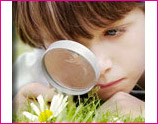
Earth, Space, and Life — check out the K-12 science lesson plans offered through Montana State University’s Extended University Website, a number of which explore the region’s local environment and Native American cultures.
Read More
Filed under: Web Resources | Comments Off on Curriculum: Montana State U. Lesson Plans
Tags: Earth Science, Lesson Plans, Life Science, Montana, Native American, Physical Science, Science Curriculum
Posted on December 24th, 2009 by ASEE
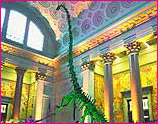
In this 3-day professional development institute at the American Museum of Natural History in New York City, middle and high school teachers engage with a global gravity data set to understand how water distribution across the globe is affected by climate change, and learn how NASA scientists gather and interpret data. Dates: Feb. 17, 18, 19, 2010; 9 a.m. to 4 p.m. Cost: Free. Application deadline: Jan. 12.
Read More
Filed under: For Teachers, K-12 Outreach Programs, Web Resources | Comments Off on Teacher Program: Space Institute, NYC, Feb. 17-19, 2010
Tags: NASA, Professional Development, Programs for Teachers, Satellite, Space
Posted on December 16th, 2009 by Jaimie Schock
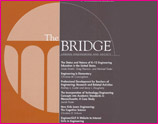 The Bridge, the journal of the National Academy of Engineering, features essays on engineering research, education, and practice; science and technology policy; and the roles of engineering in society. Each issue is available for reading online, or in downloadable pdfs.
The Bridge, the journal of the National Academy of Engineering, features essays on engineering research, education, and practice; science and technology policy; and the roles of engineering in society. Each issue is available for reading online, or in downloadable pdfs.
Read More
Filed under: Web Resources | Comments Off on Engineering Journal: The Bridge
Tags: Publication, Research on Learning
Posted on December 15th, 2009 by ASEE
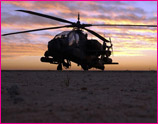
Engineering Wonders and Man Made are only two of several online shows made available on the Science and Technology section of the National Geographic Channel Website. The videos, which range in topic from volcanoes to skyscrapers, Apache helicopters, the polar station, and the engineering of the Wonder Bra, are each about 3 minutes in duration.
Read More
Filed under: Web Resources | Comments Off on T.V. & Video: Nat’l Geographic
Tags: Amazing Engineering, National Geographic Channel, Science and Technology, Television show, Videos
Posted on December 15th, 2009 by ASEE
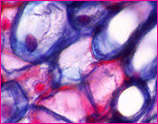
The Siemens Foundation Science Day Website features videos and hands-on activities for students in grades 4 through 6 to “help reinvent the science class.” The activities promise new, original experiments with intuitive directions, materials lists, and home extensions.
Read More
Filed under: Web Resources | Comments Off on Curriculum: Siemens Class Activities, Grades 4-6
Tags: Grades 3-5, Grades 6-8, Lesson Plans, Science










 “A number of engineering-based curricula, even at the early elementary school level,2 are being used to teach thousands of U.S. children from diverse backgrounds. The success of these curricula suggests that some aspects of engineering are generally accessible to a broad range of children at many different age levels.”
“A number of engineering-based curricula, even at the early elementary school level,2 are being used to teach thousands of U.S. children from diverse backgrounds. The success of these curricula suggests that some aspects of engineering are generally accessible to a broad range of children at many different age levels.” The Lemelson-MIT Program’s Invention Dimension is a fun-filled and at times wacky approach to making learning about invention exciting for the kid in all of us. Have some fun with invention games and explore the wealth of inventor and invention resources, including inventor profiles and patent guidelines.
The Lemelson-MIT Program’s Invention Dimension is a fun-filled and at times wacky approach to making learning about invention exciting for the kid in all of us. Have some fun with invention games and explore the wealth of inventor and invention resources, including inventor profiles and patent guidelines.


 The Bridge, the journal of the National Academy of Engineering, features essays on engineering research, education, and practice; science and technology policy; and the roles of engineering in society. Each issue is available for reading online, or in downloadable pdfs.
The Bridge, the journal of the National Academy of Engineering, features essays on engineering research, education, and practice; science and technology policy; and the roles of engineering in society. Each issue is available for reading online, or in downloadable pdfs.
